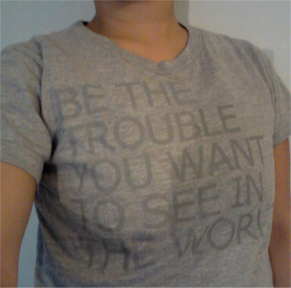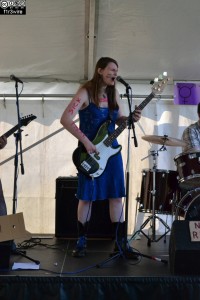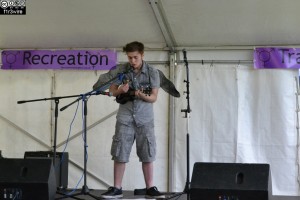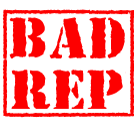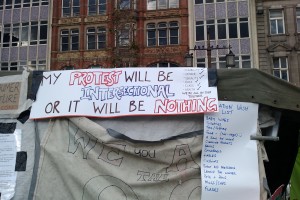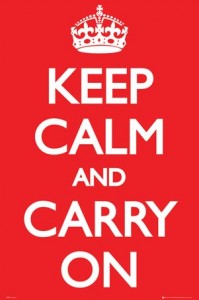Earlier this month I, along with two other committee members, spoke to Nottingham Lesbian and Gay Switchboard about the trans social and support group we run. One of the things that came up was the complexity of trans terminology. As someone with some knowledge of the community, as someone who is, in a small way, a trans activist, and as someone with a linguistic background I’m intrigued by the words we use and the way we try to create our stories of flux and change out of these words. Words have immense power in this community; often simply knowing the word for something is an act of empowerment, a realisation that there are others like you and there is a place for you in the world. Words can summon identities into being; words can make manifest inchoate feelings of difference and not fitting in. Words are brilliant.
However, I’ve not read a great deal on linguistics and trans issues. I have an interest in language and gender but all too often I find there’s a disconnect between the linguistic research and what I know as an activist. For example, while reading Benwell and Stokoe’s 2006 Discourse and Identity I came across the following:
The speakers are all ‘women’. They are relatively ‘young’, though not ‘teenagers’. They are ‘white’. The presenters’ accents sound ‘upper middle class’. Jane sounds ‘educated’ and ‘middle class’. We presume they are all ‘English’, and we know Jane is ‘heterosexual’ – she has a male partner.
While Benwell and Stokoe do go on to note that “[e]ach of these categories can be further unpacked”, they don’t make any comment about the fairly major assumption they make about Jane’s sexuality. In the activist communities I belong to, someone assuming that a person is heterosexual just because they have a male partner would immediately be questioned about the basis of their assumption. Jane’s last partner could have been a woman. Jane might identify as queer for political reasons. Jane might be polyamorous and have partners of different genders, Jane might be married to a man and monogamous but also attracted to women. As an academic, I have to admit that coming across this assumption in the book’s introduction made me wonder what other assumptions about identity were being made in the book – how far can I trust their analyses of identity if they can make such a basic assumption?
As someone who uses critical discourse analysis in their research, identifying the context of language use is important to understanding it. There are some issues informing the way trans identities are conceptualised within the trans community – the background knowledge and understanding that makes some words acceptable and some unacceptable or unthinkable.
One of the things that I find most striking is the awareness of queer theory; I’ve had much more interesting and informed discussions about gender and queerness at trans socials than I have at research seminars. However, this awareness of gender binaries, gender fluidity, gender performativity, and the power to reshape, reinterpret and individualise gender inevitably comes into conflict with the idea of having an innate sense of one’s “real” gender. Conceptualising gender and gender identity – where it comes from, how it is formed, whether it is innate or realised through performance – is not a theoretical exercise but has profound implications for trans people. If gender is simply realised through performance, then what about bodies and the desire to change our bodies?
However, gender identity itself is problematic. Some people identify as non-gendered – they do not feel they have a gender identity and framing the discourse in these terms is inaccurate, discriminatory and erases their experience.
There is tension between the trans community and the medical profession. People who seek to change their bodies, either through hormones or surgery, usually have to do this through the medical establishment. While there are ways to acquire hormones without medical supervision, this has risks and, at least in my experience, is not recommended (although obviously this differs according to access to appropriate medical care etc). The medical profession, therefore, also act as gatekeepers and control access to care – in the UK, an individual seeking hormones or surgery on the NHS has to go through a Gender Identity Clinic where a panel decides whether they’re suitable for treatment. Not everyone is deemed suitable, and people identifying as genderqueer or non-binary gendered have had particular difficulty in getting approved (although new WPATH guidelines should change this).
However, this brings in the issue of who gets to decide what “trans” is and, indeed, how it should be defined.
Not everyone who identifies as trans wants to medically transition, not all want to transition between binary genders and not all identify in such a way as to make transition straightforward or, indeed, necessary. I’ve heard Nat of Practical Androgyny discuss the terms transsexual, transgender, trans and trans* and how they’re in a constant process of resisting the medicalisation of trans identities, trying to be as inclusive as possible and creating space for ‘new’ identities to exist. Zagria identifies five meanings of transgender and discusses them in the linked essay.
Language itself can also be problematic. The variety of English I use – British English – doesn’t have a gender neutral singular pronoun. This post outlines some alternatives but they aren’t widely known or accepted outside the queer community – as an undergraduate, I got told off for using ze/zir in an essay about gendered language.
This post highlights some problematic language within trans communities. As the author explains
The stories of our bodies, our experiences, and our identities have traditionally been told from a perspective of assumed cissexual superiority. Increasingly, trans people want to be able to speak to one another or to cis people in our own words–words that reflect our lived experiences and empower us as trans people. That means developing a new, trans-positive vocabulary. It also means re-examining the words we use (and the words cis people use for us), tossing out words and phrases that don’t pass muster, and replacing them with better ones.
There are some obviously problematic terms – calling someone a genetic female or XX boy doesn’t really work when you realise how prevalent intersex conditions are; these terms conflate the genotype with the phenotype, but without genetic testing it’s impossible to know what one’s genotype actually is. Less obvious is the problematic use of terms like female-bodied to describe someone female-assigned at birth – some people within the trans community would argue that a female body is a body belonging to someone who identifies as female. These terms seem to wax and wane in their popularity – female assigned at birth/FAAB, assigned female at birth/AFAB, male assigned at birth/MAAB and assigned male at birth/AMAB are terms that I’ve noticed relatively recently.
So, what might a study of trans language look like?
As a linguist, I’d be inclined to break this into three main categories: the umbrella terms used to describe the diversity of trans identities; the terms used to describe identities; the terms used to describe trans bodies.
There have been surveys on trans language, but as a corpus linguist I’m interested in naturally occurring language – while data elicted through surveys can be interesting and useful for identifying words that might be of interest, ultimately I’m more interested in how these words are actually used. Which are common terms? Are certain words used more frequently in different parts of the community? Do these words have different meanings within the community? When do words start being used and how do they spread out? What’s the effect of the internet (particularly user-created material) on language? Do people use language differently if they’re seeking medical involvement or as that progresses? Happily, there are quite a few trans-related sites, forums, tumblrs etc so there is suitable data out there to include in a corpus.
One of the things I’m interested in is fine-grained use of data. My corpus made up of Times Digital Archive texts allows me to split up the data by year and, using some php, by type of article (Letters to the Editor, for example). There are loads of interesting ways to split up the trans data I’d hope to collect and to an extent it depends on what I’m trying to find out. For the questions I outlined above, it would be good to be able to split the corpus by year the text was produced, site it came from from, and some details about the writer – their age, how they identify, the variety of English they use, possibly some information about any medical involvement they’ve had or are seeking (if applicable).
Sadly this has to go on the back burner for now because of my thesis, but at some point I’d love to do more research into this. To me, trans language highlights the explicit negotiation of language in a community. New terms are coined, defined and disputed. It also is a place where queer and gender theory and practice collide in a way that has incredibly important, real-life implications – these are not the debates of the ivory tower, but affect how people lead their lives and indeed, what sort of lives they are able to lead.

